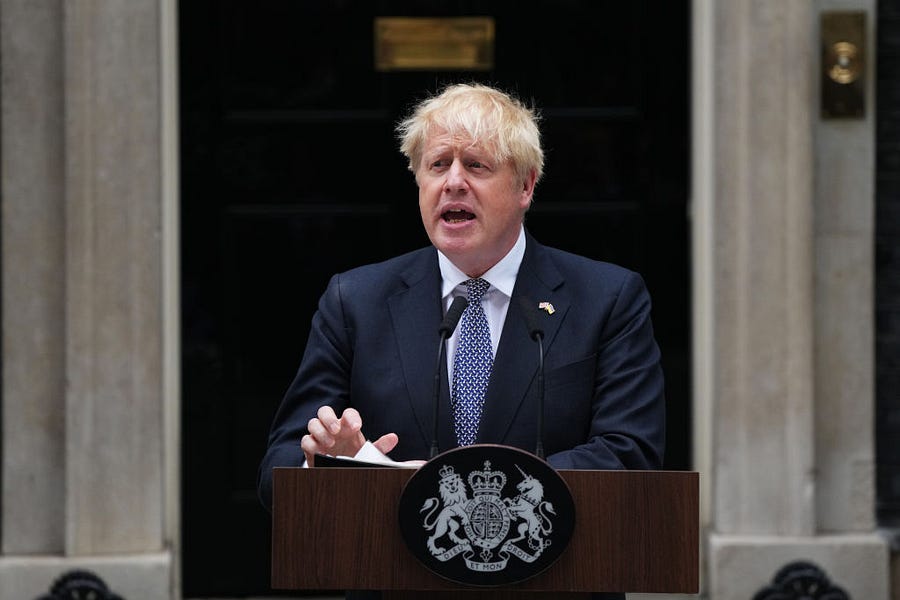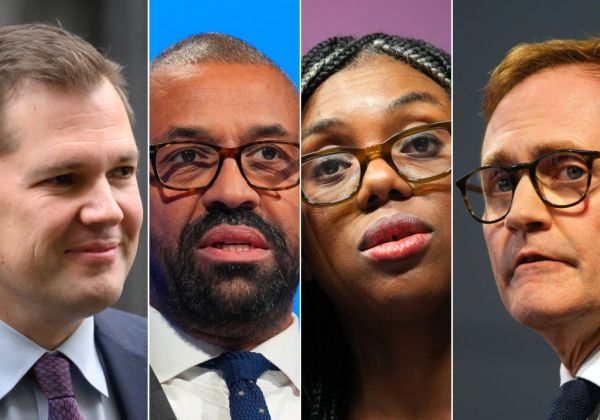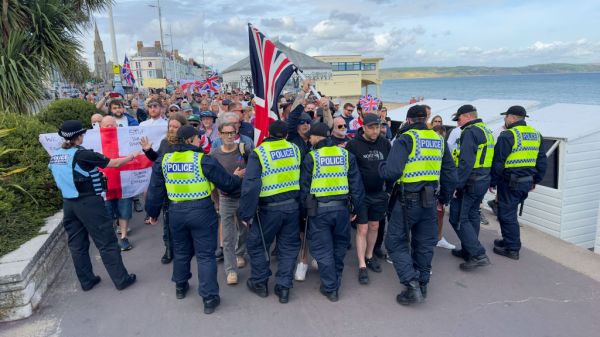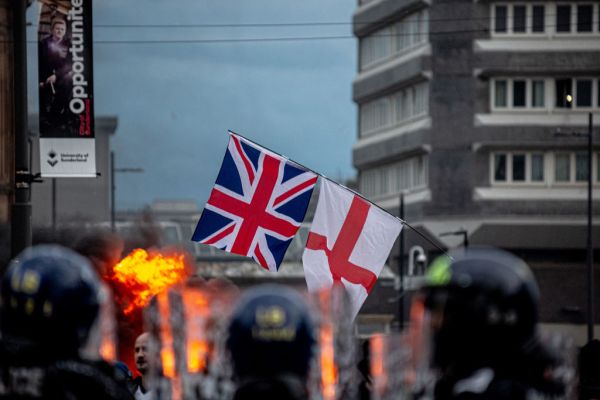Since becoming prime minister of the United Kingdom, Boris Johnson has frequently been compared to Donald Trump. His messy blond hair, boorish demeanor, and populist tendencies have made this an easy comparison. Nevertheless, it is incorrect.
As Boris Johnson’s premiership ends, a closer examination of his time in power reveals that Johnson is, in fact, not a British Trump, but a British Richard Nixon. Just as with Nixon, it was not the crime that did Johnson in, but the cover-up. And in both cases, the crime was an unforced error completely without political justification. While Nixon’s crime was of course far greater, his downfall shares many similarities with Johnson’s.
The parallels with Nixon are outright uncanny. Right before Watergate, Nixon was so popular that he won his 1972 re-election in a landslide, winning 49 out of 50 states. Much of his popularity stemmed from him ending the decade-long debacle of the Vietnam War. Of course, his far-left opponent, George McGovern, made the job easy for him. The anti-war left, of which McGovern was part, found itself unable to adapt its messaging once American troops had left Vietnam.
Boris Johnson in 2019 called for a snap election a few months after being chosen to lead the Conservative party (which made him prime minister by default). Against him stood a deeply divided Labour Party, led by Jeremy Corbyn, a far-leftist with such extreme views he was almost expelled from the party back when it was led by Tony Blair. After Johnson unexpectedly managed to negotiate a withdrawal agreement with the EU, Labour was left in a tough spot. Johnson’s campaign message was simple: He would “Get Brexit done.”
This was stunningly effective, as most Brits, regardless of how they had voted in the 2016 Brexit referendum, at that point just wanted to get the whole thing over with. Against this stood Labour’s message, promising a renegotiated withdrawal agreement followed by a second referendum to accept the new agreement or cancel Brexit altogether, which would have dragged out Brexit for one or several more years. Johnson won a huge majority in the snap election, including working class constituencies in northern England that Labour had held for generations (the famous “red wall”).
For supporters of Johnson and the Brexit project he championed, these past few weeks—indeed, months—have been tough. Like Watergate, the “Partygate” scandal started as a trickle but turned into a flood. In late November last year, Johnson was accused of having attended a party during the pandemic.
Initially, the reports concerned a Christmas party, and Johnson was not initially accused of having attended it—just of allowing it. Just six days before Christmas Day 2020, Johnson had canceled Christmas celebrations for all Brits, announcing the harshest lockdown restrictions to date, effective immediately. These restrictions virtually banned travel and any social gatherings with non-household members. However, on the two days before, three separate social events had taken place at Downing Street featuring Secret Santa exchanges, pub quizzes, and plenty of alcohol. Employees working in the same building complained about the noise.
Johnson at first denied that these parties had taken place. He then conceded that they may have happened, but that he certainly had not attended them. Then reports surfaced of more parties, including ones that were clearly not necessary work events (as Johnson claimed the first party was). In January of this year, Johnson was accused of attending a garden party back in May 2020. He initially denied this before changing his story, claiming the event was allowed under restrictions at the time. While this particular garden party took place outdoors at the tail end of the first wave of restrictions and when more and more Brits had stopped strictly adhering to social distancing rules, believing (wrongly as it would turn out) that the pandemic was over, the garden-party story led to a constant drip of new reports of possible pandemic violations by Johnson and his government.
In an embarrassing spectacle, Johnson appointed an investigator to look into pandemic violations by himself and his own government and civil service, and maintained that he could not comment on whether he had attended any party until the investigator had finished her report. Why he could not do so was not clear: He would certainly have known whether he had attended banned social events. This blatant attempt at kicking the can down the road in the hopes that investigator Sue Gray would be unable to find hard evidence, which would allow Johnson to deny wrongdoing, caused his approval rating to collapse.
Then pictures began to leak and became Johnson’s own smoking gun. The Christmas parties at Downing Street did take place, and Johnson not only knew about them but attended in person. Johnson had also allowed his staff to throw him a birthday party at a time when such in-person parties were banned. Soon, evidence emerged of Johnson attending possibly dozens of illegal events. After police had initially declined to open a criminal investigation, Johnson was subsequently fined. Despite precedent being that an MP convicted of a crime should resign, Johnson adamantly refused to do so, until now.
Why did Johnson not accept that his time was up? By all accounts, he refused to believe ordinary people care about “Partygate.” In another similarity with Nixon, Johnson’s last year as prime minister was plagued by high inflation. Johnson ascribed his low approval rating and his party’s dismal polling numbers to the worsening cost-of-living crisis and believed that, if he could only hold on until inflation had subsided and until the effects of his “leveling up” infrastructure program took hold, he could stage a comeback like he had so many times before. The next election is, after all, not scheduled to take place until January 2025.
Johnson and his allies kept insisting, like Nixon, that the nation wanted to “move on” from the scandal and focus on the “real issues” of the day. They kept repeating this narrative to the bitter end, even as poll after poll showed that the British people really did care.
Johnson may have reasoned that many other politicians in other countries had been caught violating restrictions and survived (one notable American example being California Gov. Gavin Newsom). Those who did survive such scandals, however, generally admitted their actions shortly after accusations became public. And crucially, few if any had built their career and public image around their folksiness and ability to understand and speak for the common man. “Partygate” struck directly at Johnson’s main appeal: that he is not like other politicians.
Many, including myself, believe that had Nixon come clean about Watergate as soon as it happened, he would have survived. He would have suffered political damage, but he nevertheless would have been able to complete his second term. Could Johnson have survived “Partygate”?
I strongly believe that the answer is yes. But his cover-up and denial prevented voters from hearing his side of the story. Had Johnson decided to immediately switch to damage control, he could have made several arguments in his defense.
Johnson got infected and hospitalized with COVID-19 early in the pandemic. This is likely one big reason he was not bothered by the idea of attending social gatherings: He already had the antibodies, and thus his risk of being infected or of spreading the virus to someone else was minimal. His attendance at these events may have looked bad, but they did not pose any public health risk.
It should also be noted that there is no evidence that Johnson took the initiative to throw any parties, a fact Johnson could have used to mitigate the damage if he had decided to come clean about his actions. The only party that was explicitly for him was his birthday party in June 2020—a surprise party arranged by members of his staff. Johnson could have explained that he felt it would have been rude if he had chastised his guests and immediately sent them home for breaking restrictions. Clearly, that is what he should have done, but many voters would have empathized with the awkwardness of the situation. Besides, in June 2020 the curve appeared to have been successfully flattened and restrictions had been loosened (though the birthday party was still an illegal gathering).
In an age where every phone is a camera, there was never any way that evidence of Johnson’s misconduct would not come out. Had Johnson understood this, and understood exactly how badly voters would view these events, he may have chosen a different strategy, one that would have revolved around transparency and asking voters for their forgiveness for the transgressions he had committed during the pandemic.
Like Nixon, Johnson has many achievements to be proud of: He got Brexit done and negotiated a trade deal with terms favorable enough that they were deemed outright impossible prior to his ascent. He managed a vaccine rollout that became the envy of the world and allowed the U.K. to lift restrictions months before the rest of Europe. Johnson will be sorely missed by Ukraine, as he has undoubtedly been the best friend the country has had in Europe and arguably anywhere in the world. Johnson’s government began supplying Ukraine with arms before the war even began, back when the rest of Europe still considered such moves to be unnecessary and dangerous escalation. Domestically, Johnson has cracked down on cancel culture and made great strides in fighting for free speech and against campus censorship.
Even as someone who has called for his resignation since January, I take no joy in watching him leave like this, destroyed by misconduct and by his own Nixonian web of lies. One can only hope that when history books are written, they’ll remember Johnson for his political achievements rather than for his personal mishaps.








Please note that we at The Dispatch hold ourselves, our work, and our commenters to a higher standard than other places on the internet. We welcome comments that foster genuine debate or discussion—including comments critical of us or our work—but responses that include ad hominem attacks on fellow Dispatch members or are intended to stoke fear and anger may be moderated.
You are currently using a limited time guest pass and do not have access to commenting. Consider subscribing to join the conversation.
With your membership, you only have the ability to comment on The Morning Dispatch articles. Consider upgrading to join the conversation everywhere.